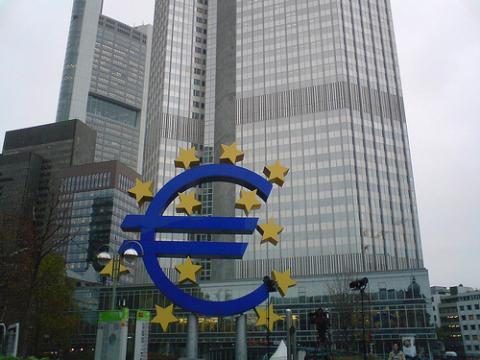Sheer bloody cheek

The troika's almost contemptuous dismissal last week of the concerns of the Irish people gives a good insight into the mentality of our EU overlords. By Vincent Browne.
It was the insolence of the troika members that was the most striking feature of their dreary press conference in the bleak European Commission offices on Dawson Street last Thursday. Polite insolence, but insolence nonetheless.
And that was not just (or even mainly) to do with the refusal of the ECB representative, Klaus Masuch of Germany, to deal with the simple question about why the ECB was blackmailing us into paying unguaranteed Anglo bondholders. It was more the insolence of the EU Commission representative, István Székely of Hungary.
Incidentally, in case of confusion, István is not the famous Hungarian pianist of the same name, who, I understand, is not even a bit insolent. Our particular István has been director of economic and financial affairs at the European Commission since 2007, and probably does not have much time for piano-playing.
Our István wanted to assure us that he was concerned about vulnerable people in Ireland and that, if anyone had any concerns about vulnerable people, because of the terms of the rescue package, they should let him know about it. Apparently, his email address is readily accessible and, by inference, he would deal with that.
The sheer bloody cheek of it - the idea that it is to him, rather than to our own government, who we should go - tells us a lot about the mindset of these boyos. It also tells us a bit about the mindset of our own boyos (Enda Kenny, Eamon Gilmore, Michael Noonan and Brendan Howlin) who hadn't put István right on who supposedly runs the show here.
Klaus Masuch has been in the wars before, most recently in Greece and in Dublin taxis. Klaus told us how impressed he was at how informed the Irish public was on economic affairs and on the rescue package and how taxi drivers were particularly well informed on these matters, as he discovered in conversation with them on his way from the airport.
I asked him what he would have said to his taxi driver had the driver enquired why the ECB was blackmailing us into paying billions to Anglo Irish Bank unguaranteed bondholders. (I didn't use the word "blackmail" for fear of annoying our masters). I had asked the same question after the troika had undertaken its first review, which was last March.
Klaus said he had answered the question last March, but he would answer it again.
He said: "I can understand that this is a difficult decision to be made by the government, and there's no doubt about it but there are different aspects of the problem to be balanced against each other, and I can understand that the government came to the view that, all in all, the costs for Irish people, for the stability of the banking system, for the confidence in the banking system of taking a certain action in this respect, which you are mentioning, could likely have been much bigger than the benefits for the taxpayer, which of course would have been there.
"So the financial sector would have been affected, the confidence of the financial sector would have been negatively affected, and I can understand that there was a difficult decision, but that the decision was taken in this direction."
The answer didn't address at all the issue of the ECB forcing us to pay the unguaranteed bondholders. I pursued this for a bit, to no avail. But the almost contemptuous dismissal of the concerns of Irish people, including his taxi driver, over how the ECB was blackmailing us into paying debts that are not, and never were, ours - to protect European banks from financial market pressures - was also an insight into the mentality of these EU overlords. We had better have a great deal of regard to the mentality of the EU overlords for, if the government gets its way, we are about to give them permanent oversight, not just of our fiscal arrangements, but over our economic policies generally, via the proposed "Treaty on Stability, Coordination and Governance in the Economic and Monetary Union".
The drafters of the fourth and final draft of this treaty are clever-clogs, who have come up with ingenious devices to correct the obvious illegalities in the earlier drafts. But I suspect they have not been clever enough, especially in relation to its presumption in seeking to change EU treaties - for instance, on the ambit of the European Court of Justice and of the European Commission.
But that aside, what this treaty would do would be to give permanent oversight to the likes of Klaus and István, not just over our fiscal arrangements, but over economic policy.
This would be a more comprehensive surrender of sovereignty than anything previously contemplated and a surrender of sovereignty that could tie us forever into an economic model that would drive inequality and precisely the culture that caused our recent downfall.
Contrary to other speculation, it seems there is an inevitability of a referendum on this because it requires the transposition of the substance of this treaty "into national legal systems, through binding and permanent provisions, preferably constitutional".
We have no means of making arrangements "binding and permanent", other than through a change in our Constitution - which, of course, requires a referendum.
So the last word may yet remain with us.
Image top: giorgos_vr.
